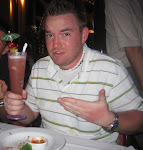

By Michael Stein
During the middle ages (as far back as 1295 to be exact) a “Letter of Marque and Reprisal” was essentially a license to wage a private war; to seize as much booty as a captain could get his grubby meat hooks on. The King would allow his captain to seize an enemy’s ship and in return proceeds would be split amongst the crown and the looting privateer. Such was the “Letter of Marque,” it gave the lowly sea-fairing captain imperial permission to loot and load spoils. The word’s etymology helps give its modern-day meaning connotation: in Germanic ‘mark’ is a ‘boundary’ or a ‘boundary marker.’ While the days of Sir Captain Francis Drake looting for Spanish doubloons are long over, boundaries and markers still exist separating home brewing from professional brewing. And while the gaps between home brewing and commercial brewing can be vast they are in many ways the most manageable they have ever been (at least in America).
So why start with the high seas? To shed light on a craft brew inspired by a home brew (the point of The Session #41) of course! One of Maryland’s beloved craft breweries has produced a beer known as the “Letter of Marque.” This beer, brought into production with an annual competition, blurs the lines between home brewing and commercial brewing. As Hugh Sisson, Heavy Seas’ founder, states on his product:
Winners from our annual “Letter of Marque” homebrew competition will work along side our brewmaster to create a yearly special release. Historically, a Letter of Marque was a document that made a Pyrate a legitimate privateer. Our Letter of Marque makes a home brewer a legitimate professional!”
The Letter of Marque series, produced annually by Heavy Seas, is a perfect example of a craft beer inspired by home brewing. While the craft beers produced by Heavy Seas are themselves extraordinary medal-winning libations, their Letter of Marque is both an homage to the crazy creations of home brewers AND a way to lend legitimacy to brewers who never believed their recipes would be bottled and shipped across state lines to a wider audience.
Sometimes a wider audience is not the end goal of a home brewer or a craft brewer. Such is the beauty of brewing locally. Sharing with friends who are within your area code is important—you may be surprised by the amount of home brewers in your area. I certainly was when I attended this month’s DC Homebrewers meeting (http://www.dchomebrewers.com/). If you want to enter your home brew in a competition that will give you grand syndication there are a number of ways to do it. There’s the Great American Beer Festival Pro-Am, Heavy Seas’ “Letter of Marque” competition and of course Sam Adam’s LongShot Competition for starters.
As “good” beer drinkers know, craft brewing has always been influenced by home brewing. In most cases, home brewers are ahead of the curve in terms of their choices for both “marginal” and “exceptional” home brew recipes. It was not always like this however. And even today, “good” beer drinkers struggle to make sense of the stranglehold ABIB (Anheuser-Busch InBev) still possesses on the market. I would argue that it is a critical mass which has kept ABIB in business, but American microbrewers and American home brewers have been chipping away to convert the masses. Once the majority of commercial beer drinkers have been baptized by cannon fire (Loose Cannon fire that is!) the zealous lot who appeared rogue “hopheads” will become main-stream. Such is the shift in American cultural memory—such is the shift within the home brewer’s memory. Figures like Bert Grant, founder of Yakima Brewing begin to fade as monoliths like Charlie Papazian continue to trail blaze. Had I not attended an O’Dell Brewing Company tasting recently hosted by Doug O’Dell, the myth of a man who carried around a vial of hop oil to flavor the Bud, Miller or Coors he was drinking would still be as elusive as the Loch Ness Monster. However off-kilter his antics may have appeared, Bert Grant belongs to a long line of “beer activists” for lack of a better descriptor.
The world needs these kinds of people. And the world needs home brewers. In the end, the recipes and formulations home brewers create continue to shape the craft beer community and indeed the world. We should honor the prophetic words of Michael Jackson as he interpreted Yakima Brewing Company’s label “brews of such quality made for very special pubs, which in turn sustained wonderful neighborhoods, creating marvelous cities, contributing to magnificent countries, adding up to a beautiful world.”









No comments:
Post a Comment